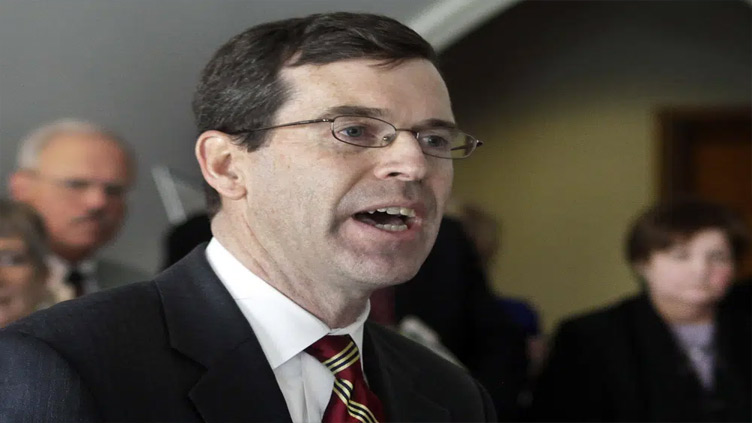Biden's appeals court nominee faces rare Democratic scrutiny

The close attention on an abortion case also shows how stakes are ever-higher in a post-Roe v.
WASHINGTON (AP) — One of President Joe Biden’s nominees to a federal appeals court has generated rare concern from some Democrats and outside groups over his signature on a legal brief defending a parental notification law in New Hampshire, injecting the issue of abortion into his confirmation fight from an unexpected flank.
Michael Delaney, nominated for the 1st U.S. Circuit Court of Appeals, based in Boston, said in written testimony to senators that he did not write the 2005 brief and otherwise had “extremely limited involvement” in the case that was brought while he was deputy attorney general in New Hampshire.
But the signing of the brief, along with scrutiny of his representation of St. Paul’s School, a private boarding school in New Hampshire that was sued in connection with a sexual assault, is complicating a confirmation fight in which the White House has little room for error.
The close attention on an abortion case also shows how stakes are ever-higher in a post-Roe v. Wade world. Access to abortion could hinge on lower-level judges now that the U.S. Supreme Court has overturned the constitutional right to the procedure and advocates on both sides want near-certainty as they assess nominees. The issue helped derail one proposed Biden pick last summer when the White House decided not to nominate an anti-abortion lawyer in Kentucky following an outcry from Democrats.
Delaney’s case will test how far Biden will push Democrats to support his nominees to the federal bench even after the White House set records in the number of appointments in his first two years. It will also test the power of personal persuasion in the clubby Senate, whose members can often be influenced by fellow members whose counsel they trust.
In this case, both New Hampshire Democratic senators, Jeanne Shaheen and Maggie Hassan, strongly back Delaney and are deeply respected by other senators. Both are also fierce supporters of abortion rights.
At issue is a New Hampshire law, passed in 2003 but repealed in 2007, that required minors to tell their parents before they obtained an abortion. As the state’s deputy attorney general, Delaney was among those who signed a brief submitted to the U.S. Supreme Court that defended the law because it “does not present a substantial obstacle to any woman’s right to choose an abortion.”
The law, according to the brief filed in the case, Ayotte vs. Planned Parenthood of Northern New England, “promotes compelling state interests, not the least of which is protecting the health of the pregnant minor by providing an opportunity for parents to supply essential medical history information to the physician.”
Delaney’s involvement is detailed in response to written questions from Sen. Dianne Feinstein, D-Calif., that he submitted after his confirmation hearing last month. But his signature on the brief has caused consternation for Sen. Richard Blumenthal, D-Conn., a member of the Senate Judiciary Committee and a strong supporter of abortion rights.
“For me personally, reproductive rights is a fundamental, core issue,” Blumenthal told The Associated Press. “And I think I’d want to know why he put his name on the brief and what it reflects in his personal view.”
Besides Blumenthal, two other Democratic members of the closely divided Senate, Cory Booker of New Jersey and Mazie Hirono of Hawaii, have also expressed general reservations about his nomination, particularly as it relates to the St. Paul’s case. And at least one other Democrat on the Senate Judiciary Committee is concerned about Delaney’s involvement in the Planned Parenthood case, according to a person familiar with the senator’s thinking who spoke to the AP on the condition of anonymity to discuss ongoing deliberations over the nomination.
One factor being weighed is how much Delaney’s involvement in the brief was just a matter of course in his job. Delaney told senators that he was not involved in the decision to appeal the case to the Supreme Court, nor did he represent New Hampshire during oral arguments there. He was not directly involved in formulating the brief’s arguments, he said, and while he read the brief before it was submitted, he said he does not recall whether he offered substantive feedback.
In a statement to the AP, former New Hampshire Gov. John Lynch, a Democrat, said: “Mike Delaney strongly supports women’s reproductive freedom.”
Lynch said he disagreed with then-Attorney General Kelly Ayotte on the Planned Parenthood case. “When Mike became my legal counsel, he worked with me to successfully repeal the law at issue in the case,” he said.

